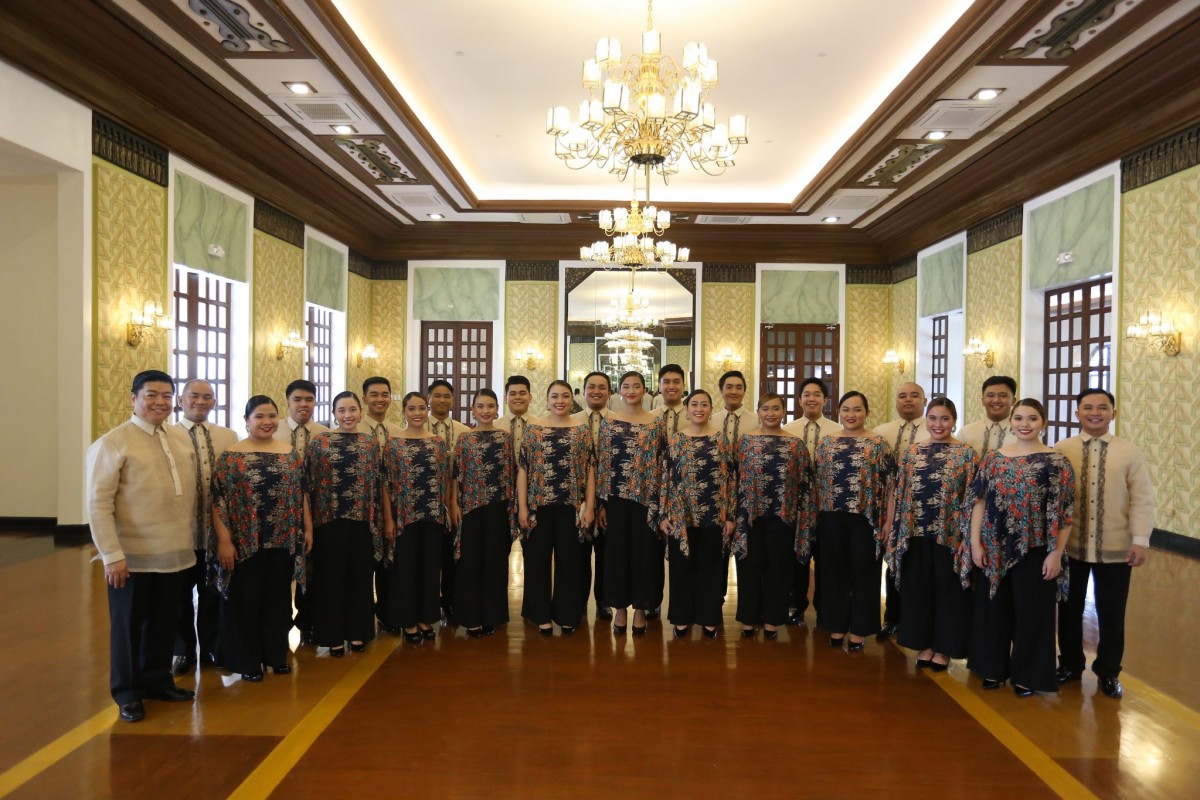
QUEZON CITY, (PIA) -- The National Commission for Culture and the Arts (NCCA), through the Sentro Rizal, launches ALPAS: Awit at Letra ng mga Pambansang Alagad ng Sining, an album of music, lyrics, and arrangements done by National Artists for Music and National Artists for Literature, featuring the Philippine Madrigal Singers (Madz).
ALPAS is intended to be a repository of masterpieces done by National Artists for Music and National Artists for Literature whose masterpieces had been transformed into musical renditions. The album aims to give the listeners and music students an opportunity to experience not only sublime and spectacular merging of two art form – music and literature, but also acquaint the world, especially the Filipinos overseas with the Filipino genius and artistry.

The album is comprised of twelve songs from various National Artists, which are:
Restless, written by National Artist for Music Francisco Feliciano dedicated to National Artist for Music and Philippine Madrigal Singers Founding Choirmaster Andrea Veneracion, is a song wherein we hear a persona that capture moments of restlessness. The persona speaks of their spirit as wandering, experiencing a deep and profound sense of desolation. It can also be heard in the song that the persona already lost sense of passion and speak at the end: for tormented souls, no refuge.
Alitaptap, a composition by Josefino Chino Toledo that used a text based on a poem by National Artist for Theater and Literature Rolando Tinio, was originally commissioned by the University of the Philippines Singing Ambassadors. The score has various elements inspired by the sounds of indigenous communities such as a soloist chanting leading the community in a kind of ritual. The text and the music present the contradiction between science and the marvels of nature.
Hatinggabi, penned by National Artist or Music and Literature Levi Celerio and composed by National Artist for Music Antonio Molina, was made to feel the sense of nostalgia and the cherished pains of pursuing love. The song speaks the desire of the lover for its beloved to come to their moments of hardship as they both share their love in both joys and pain. “Hatinggabi” was used as a symbol of a low moment for the lover.
Medley from "Noli Me Tangere" the Musical was made by music and literary giants – National Artist for Literature Bienvenido Lumbera, who wrote the libretto based on Noli Me Tangere; National Artist for Music Ryan Cayabyab, who composed the musical; and Joed Balsamo, who created the contemporary setting for choir without accompaniment combining songs from the musical.
Gaano Ko Ikaw Kamahal was penned by National Artist for Music and Literature Levi Celerio capturing one’s never-ending commitment to love. Meanwhile, National Artist for Music Ernani Cuenco captured through his music, the intimacy and the depth of love. Moreover, Philippine Madrigal Singers Artistic Director and Choirmaster Mark Anthony Carpio arranged the piece to be sung a cappella.
Prelude Etnika, originally composed by National Artist for Music Lucresia Kasilag, was interpreted for two choirs by composer and arranger Erwin Vargas.
Sa Ugoy ng Duyan is a composition which then lacked lyrics was intended to be an entry to a competition in 1943 by National Artist for Music Lucio San Pedro and was inspired from the melody that his mother used to hum when he was a child. In 1948, he met National Artist for Music Levi Celerio who then wrote the now famous lyrics to the song.
Payapang Daigdig was written by Eduardo de Leon and Brigido Batungbakal, and composed by National Artist Felipe de Leon. De Leon was moved to compose the song upon seeing the devastation in Manila brought by the war. Payapang Daigdig has become known as a song played and performed during the Advent and Christmas Season.
Tuksuhan is an interpretation of some of the Philippines’ teasing folk songs produced by National Artist for Music Dr. Ramon Santos.
Paraiso is penned by National Artist for Music Ryan Cayabyab where we hear the need for environmental protection and preservation, and a plea of to give the youth a better world. The song was originally performed by the Smokey Mountain, a group of singers founded by Cayabyab.
Bahay Kubo, one of the most popular folk songs of the Philippines, is arranged by the National Artist for Music and Founding Choirmaster of Philippine Madrigal Singers Andrea Veneracion
Sambayan is written by National Artist for Literature Virgilio Almario, declaring that we are a creative, dignified, and unified people. Meanwhile, the arrangement with accompanied choir was created by Josefino Toledo. (NCCA/PIA-NCR)




